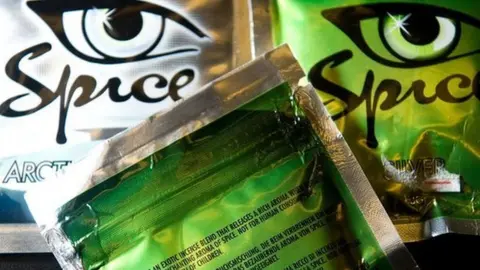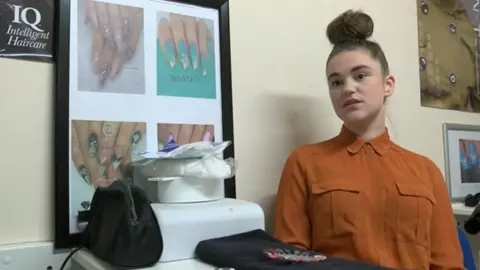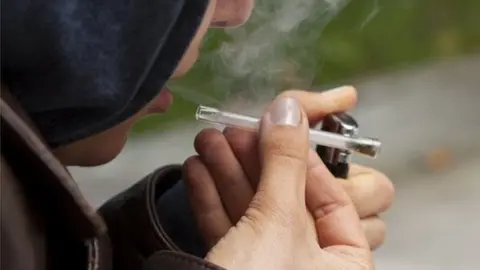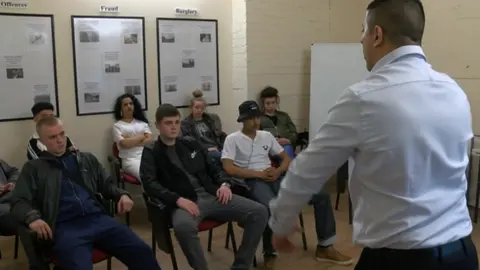School exclusions: Record numbers for drugs and alcohol
 AFP/Getty
AFP/GettyA record number of school exclusions were issued to pupils last year for drug and alcohol related issues, new statistics reveal.
Figures show 9,250 permanent and fixed period exclusions for drugs and alcohol were handed out by schools in 2015-16.
A further 2,140 exclusions were issued to pupils for sexual misconduct.
The government says every child should "have access to a good school place where they can learn without disruption and feel safe".
The figures published by the Department for Education, and analysed by BBC News show an increase over the past decade in the number of exclusions being issued for drugs and alcohol in state-funded schools.
In the last academic year 9,250 permanent and fixed period exclusions were issued for substance offences compared to 8,580 in 2006-07.

"I was like a violent dog"
 BBC News
BBC NewsYorkshire and Humber has the highest rate of fixed period exclusions in the country, with more than 50,000 exclusions handed out to children in 2015-16, for a variety of reasons.
Local charities are working with schools to try and give those children excluded from school a second chance.
Teenager Charly, who has been working with the charity In2Change in Sheffield, said: "I got kicked out of three schools because I used to hit teachers and students.
"I was constantly in trouble with the police and to be honest I was like violent dog.
"Without coming here I'd be in prison."

As the school population has grown, the number of drug and alcohol exclusions is also at its highest rate since 2010.
Drug charities say schools need to place a greater emphasis on teaching children and young people that taking drugs is not a "social norm".
Michael O'Toole, of Mentor UK, said: "We know fewer young people are using drugs but you can't just stand there and warn young people about their dangers.
"We need to get the message home that the vast majority of people don't take drugs."
 Thinkstock
ThinkstockFigures from the England and Wales crime survey show that the number of 16-24 year olds who say they have used drugs in the last year, has fallen from 30% in 1996 to 18% in 2016.
"Schools need to make sure they have a drugs policy in place to deal with this issue but at the same time we need to make sure those children who are excluded for drug offences don't suffer in the long term," Mr O'Toole added.

A report from the Institute of Public Policy Research suggests nearly two-thirds of the adult prison population were at some point excluded from school.
Hanif Mohammed, a manager at In2Change, was kicked out of his school aged 14 and later jailed for 10 years for manslaughter.
"Working with these young people is for me partly about redemption, but I can see so much potential in these kids," he said.
"Part of the challenge working with these young people is to get them to realise that education can be their salvation and it can allow them to build a better life".
A Department for Education spokesperson said: "The rules are clear that exclusion powers should only be used in particular circumstances and decisions to exclude should be lawful, reasonable and fair.
"Permanent exclusion should only be used as a last resort, in response to a serious breach, or persistent breaches, of the school's behaviour policy".
